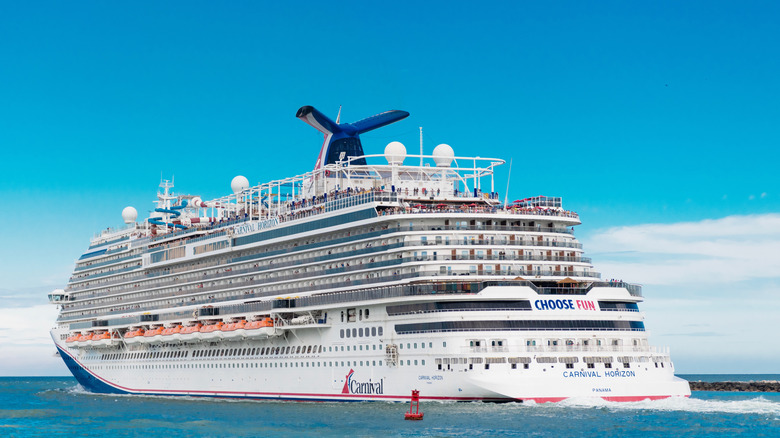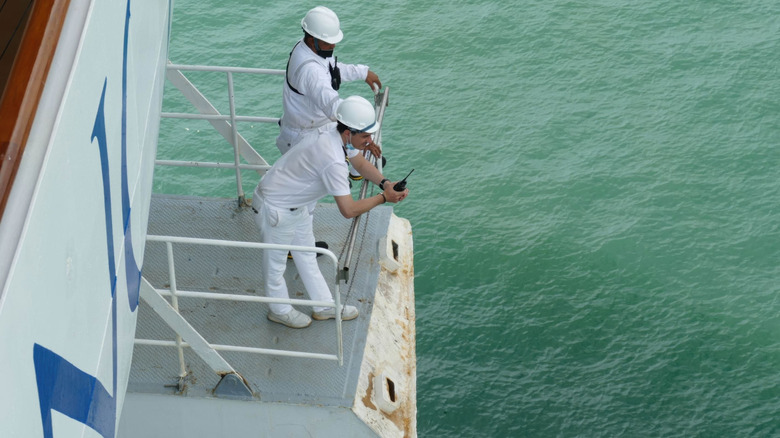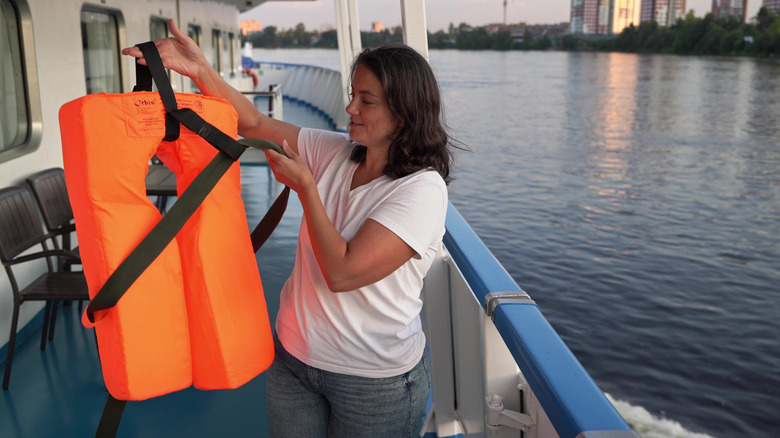What Happens When Cruise Ship Passengers Go Missing? Here's What Travelers Should Know
When you book a cruise, the plan is simple: relax, enjoy the entertainment, and wake up in a new destination each morning. With that kind of appeal, it's no surprise that Cruise Lines International Association (CLIA) projects 37.7 million cruise passengers in 2025. Yet with so many travelers at sea, disappearances do happen. Fortunately, there's a standard procedure for cases of missing passengers on cruise ships. The crew launches a search, speaks with potential witnesses, and tries to locate the missing person through various means necessary.
In the past two decades, around 400 passengers have gone missing, according to the Maritime Injury Guide. The figure is small compared to the millions who cruise each year, but it is still significant. This isn't meant to frighten or add to the reasons you should never take a cruise, though. Most voyages are safe, and the majority of passengers return home with nothing more serious than a sunburn. Still, it's worth remembering that ships are vast environments, and rare but serious incidents can occur.
Disappearances at sea don't all follow the same pattern. Some involve falls overboard, often tied to alcohol use or risky behavior near railings. When no one witnesses the fall, the person is simply declared missing. Others leave voluntarily, sometimes returning later, and in a few heartbreaking cases, the mystery is never solved. Amy Lynn Bradley is one of the most haunting examples, who vanished from a Caribbean cruise in 1998 and whose case remains unsolved decades later.
How the crew attends to issues of missing passengers
When a passenger is officially declared missing, the crew responds immediately. The person's name is broadcast over the PA system, crew teams conduct a full search, and security footage is reviewed to trace their movements. If the incident happens at sea, the ship returns to the individual's last known location, adjusting for currents and conditions. If no answers emerge, a formal search-and-rescue mission is launched with outside authorities. Under current regulations, cruise lines must also report disappearances to the FBI and the Coast Guard, making sure such cases are handled with urgency.
Former cruise director Emma Wilson explained that ships use Code Charlie to trigger a full-scale search when someone is reported missing. Alongside these coded alerts, today's cruise ships also rely on advanced tools such as surveillance cameras, electronic key logs, and port records, which make them far more prepared than they were in past decades. These systems help crews quickly narrow down whether someone is still onboard, left at port, or potentially went overboard.
Safety tips for cruise ship travelers
One of the best ways to stay safe on a cruise ship is by being informed before your trip begins. Researching your ship's itinerary helps you understand where you'll be sailing and can steer you away from cruises that dock in ports with reputations for crime or unrest, where incidents such as kidnappings have been reported. While safety standards onboard are strict and the CLIA requires all member ships to meet them, it is still worth familiarizing yourself with the International Cruise Line Passenger Bill of Rights. These include knowing your right to disembark from a docked ship if you don't have access to necessities. You should also take the time to learn the ship's safety drills and emergency signals, and brush up on some secret cruise etiquette you may not know about.
Once you're on board, communication is just as important. Share your daily plans with friends or family traveling with you. If you're sailing solo, let a trusted person know your cabin number and keep them updated about your activities. These small habits make it easier to find you quickly if something feels off. And if you're wondering how safe you are on a cruise, the numbers speak for themselves. Millions of passengers sail every year without incident. The risks that exist are often tied to avoidable behavior. Limiting alcohol, staying away from railings, and respecting safety rules are simple steps that go a long way and could even save you from unexpected activity that will likely get you banned from cruise ships for life.


